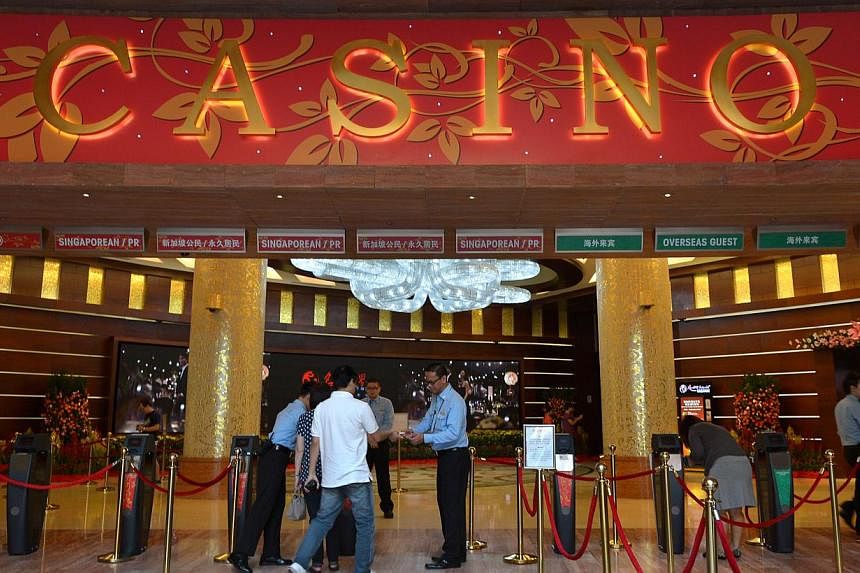SINGAPORE - The casinos at Marina Bay Sands (MBS) and Resorts World Sentosa (RWS) will face increased regional competition and potential changes to gaming policies that weigh on their medium-term growth and profitability outlook, said Fitch Ratings.
However, the sharp contraction in revenue from high rollers, or VIP clients, in the second-half of this year is temporary and that recovery in this segment should provide some respite for Singapore's two integrated resort casinos next year, the ratings agency noted.
Growth in Singapore gaming revenue has stalled and is likely to contract slightly in 2014 with macroeconomic and political factors in China being the principal cause.
A slowdown in China's economic growth, recent corruption crackdown and credit tightening have had a particularly strong impact on Singapore's casinos.
The VIP business, which is mostly Chinese, accounts for roughly half of total gaming revenue at MBS and RWS.
Fitch expects VIP numbers to improve in the latter part of 2015 and maintains that the tightening restrictions within China are temporary.
Nonethess, the ability of Singapore's gaming industry to tap into a Chinese recovery and the broader growth will be challenging in the longer term, especially as it faces increased regional competition from new casinos in the Philippines, Macau and, potentially, Japan, it added.
The Philippines will have three large-scale casino resorts by the end of this year and several major new casino projects are under construction in Macau.
Meanwhile, political momentum to legalise casinos is the strongest it has ever been in Japan while Sri Lanka, Vietnam, Cambodia, South Korea, Russia and Australia are all likely to open new casinos by 2020.
Regulatory risks could also add to the challenges for Singapore casinos, said Fitch.
Since granting its first gaming licences in 2006, Singapore has limited the casinos' ability to expand, by imposing a $100 entrance fee on citizens and permanent residents and restricting their advertising and promotional scope locally.
Political momentum is unlikely to shift towards greater liberalisation, with recent parliamentary debates focusing on gaming policy.
By law, Singapore's accommodating gaming tax is locked in at least until 2022.
However, the tax rate could be revisited as the Government considers granting additional licences when the duopoly period ends in 2017, said Fitch.
While recent political discussions suggest that the Government is unlikely to issue more gaming licences it remains a potential risk for Singapore's existing casino operators and the market remains very attractive to new entrant, notwithstanding the potential for more regional competition, it concluded.


